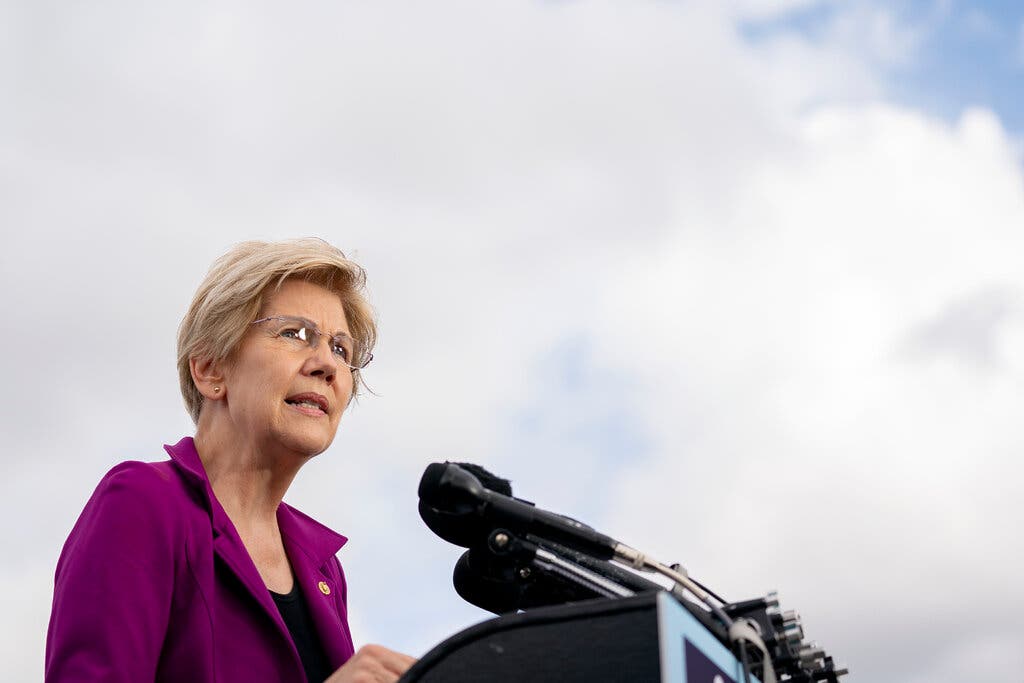As the economy reaches the year 2022, inflation continues to rise at a fast pace, and Demorcats have started to point the finger at a new source of the high and long-lasting price increases: greedy companies.
Senators Sherrod Brown of Ohio and Elizabeth Warren of Massachusetts, as well as White House spokesperson Jen Psaki, have all pointed to excessive profits in particular sectors as one factor contributing to rising prices for consumers in recent months. Despite the fact that they do not blame price-gouging enterprises for general inflation, the subtext is that increased prices are at least in part the result of corporate opportunism.
The Democratic reason for inflation is the latest in a long line of explanations that have been provided since prices rose to unacceptably high levels last year. In part, it is based on economic fact, and in part, on political necessity: Consumers are being burdened and unnerved by rising costs, making them a liability for a party that is clinging to a fragile grasp on Congressional power heading into the 2022 midterm elections.
The administration has limited control over prices: it is making minor adjustments to help keep them under control, but keeping a lid on inflation is primarily the responsibility of the Federal Reserve, which has indicated that it expects to begin raising interest rates this year to assist in controlling it.
Nonetheless, when people feel the pressure of increasing food, petrol, and home goods costs, Democrats are faced with a communications challenge in their electoral discourse. However, supply chain bottlenecks and strong consumer demand for products kept airfares and hotel rates up throughout the rest of 2020 and into 2021. More lately, pricing pressures have started to spread to service categories such as rent, where rises tend to be long-lasting — and as wages continue to rise at a rapid pace, the likelihood that firms will continue to raise prices to meet their expenses has increased significantly.
As inflation continues to be stubbornly sticky, administration officials and prominent lawmakers have refined their message to place more blame on corporations, particularly those operating in concentrated industries with a small number of powerful firms, such as meat processing or natural gas production.
Many businesses, ranging from auto dealerships to beauty salons to beef vendors, are seeing increased earnings as a result of their ability to effectively raise their pricing or discount less while still selling the same amount or more. Economists, on the other hand, have pointed out that in many circumstances, blaming large corporations for rising inflation is unduly simple. Industries have remained largely consolidated for many years, but enterprises now have the financial capability to charge higher prices as a result of increased consumer spending. The government’s stimulus checks and other incentives, which have placed extra money in the wallets of customers, have contributed to this increase.
“It’s exactly what you would anticipate when demand increases,” said Jason Furman, a Harvard economist who served as head of the White House Council of Economic Advisers under President Barack Obama.
Our food supply chains are vulnerable to shocks when too few corporations control such a huge amount of the market, the administration said in a press statement on Jan. 3, reiterating an argument that administration officials have increasingly emphasised.
Some economists have suggested that the administration’s actions may be a contributing factor to the fact that corporations are now able to charge higher prices without losing customers. Households established substantial savings reserves during the epidemic, in part because individuals were forced to stay at home for an extended period of time and in part because the government issued several relief and stimulus cheques. Many were eligible for increased unemployment benefits or a more substantial Child Tax Credit, among other perks.
Consumers have been able to spend more because of their savings, even as prices have began to rise. And although individuals are now using down their cash reserves as government assistance programmes come to an end — and mood data indicates that they are becoming more uneasy about the economy as prices rise — growing earnings may be able to keep consumer spending healthy in the long run.
It may take some time for rising manufacturing costs to be reflected completely in corporate results, since corporations establish forward-looking contracts for component components. In addition, new labour contracts featuring significant wage increases are just now taking shape and being finalised.
As Ian Shepherdson, chief economist at Pantheon Macroeconomics, put it, “I don’t really see any significant indication that firms are increasing prices by any more than you would anticipate, given the growing cost of materials and labour.” A difference must be made between pricing power — the ability to pass on a cost rise — and pricing power — the ability to improve the profit margin.

